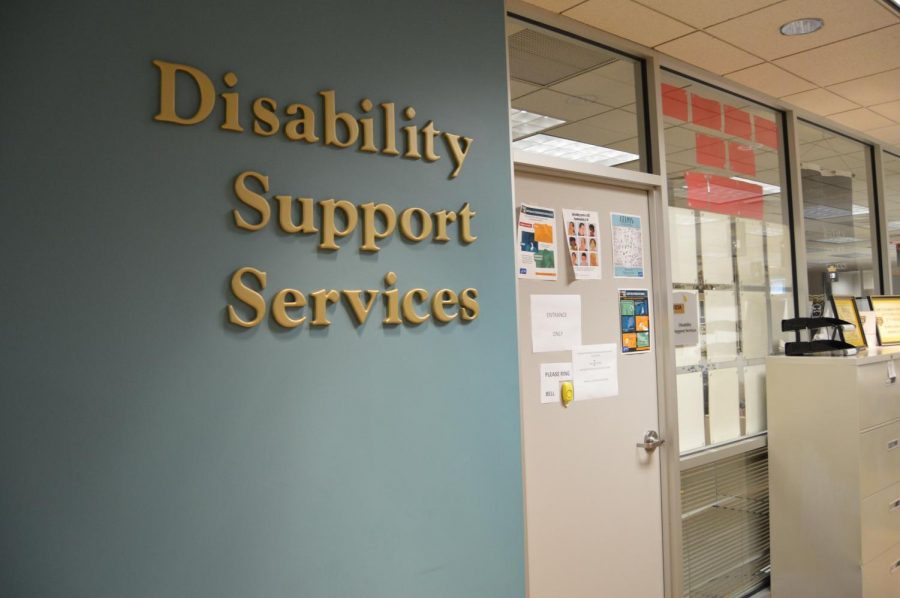Disability Support Services dives into pandemic provisions
Disability support services is located in North Foundation Hall. This office provides reasonable educational accommodation for people with a disability.
Oakland University’s Disability Support Services has shifted during the pandemic — online learning, interpreting and emotional support — but some of these adjustments have increased accessibility.
Director Sarah Guadalupe heads the program offering a range of support for any students, and the pandemic has not limited the services offered.
Video class and visual impairment
Visual impairment could stop someone from accessing online class sessions at all.
For example, Justice Richard Bernstein virtually visited OU in November and explained some challenges.
“Zoom is inaccessible for someone who is blind… For me, for the last eight months, having the chance to do simple things has become exceedingly difficult, if not impossible because I can’t set it up myself,” he said.
DSS recognized the support needed, and they’ve ensured all students have access to video calls and have offered readers for written material.
Note taking twist
“Now that things are online, I think it’s actually gotten more accessible… There’s a lot more written material that’s available,” Guadalupe said.
DSS provides some students with note takers, who record necessary information about lectures. Traditionally, note takers would go to a lecture and record notes for a student to study later.
Despite many online classes, note takers can still operate remotely. Even so, Guadalupe has noticed a drop in this service because many professors are offering their own lecture notes.
“Surprisingly, students aren’t requesting [note takers] because of all the material that is available, and… once the professor puts it in Moodle — even a couple weeks down the road — they can go back and look at that material,” Guadalupe said.
Aligning sign language interpretation and transcription
Students who require a sign language interpreter have also seen a fairly seamless transition. Normally, a sign language interpreter would attend a class and interpret the lesson alongside the professor. This format has changed for online classes, but only slightly.
Most video call softwares allow students to pin one person in the corner of their screen. Digitally the format will be more geometric, but the service can still remain the same.
Students can also invite an interpreter to office hours or any other meetings aside from scheduled class.
For students who prefer to read subtitles for online class, DSS has introduced more transcription interpreters — similar to a court reporter.
“They’re actually able to type very, very fast, and their accuracy is much better… We’ve done a great job transitioning online,” Guadalupe said. “It seems to be a smooth process for interpreters.”
For context, even in professional-grade, medical, automatic transcriptions the error rate can be as high as 63%. More accurate interpretation is necessary, and then extra interpretation doesn’t fall onto the student.
Students can receive interpretations live or later on any class video, depending on their preference.
Maintaining virtual mental health
Online learning mixed with COVID-19 stressors can pose an array of mentally taxing situations.
“We’re trying to let [students] know that they’re not alone and to use the resources on campus,” Guadalupe said. “This is difficult for a lot of folks right now, but even though we can see you face to face, we are still here… We still value the relationships that we’ve built with the students.”
Guadalupe wants to “remind students that they have support” at DSS. When students reach out to DSS they could be connected with on or off campus therapy, offered “techniques to help” or just a listening ear.
Normally, DSS attends welcome events on campus, which helps them connect with students, but those opportunities have been limited this year.
“We miss you, and we’re trying to open conversations,” Guadalupe said. “We really focus on relationships… we want students to know [we’re here].”







